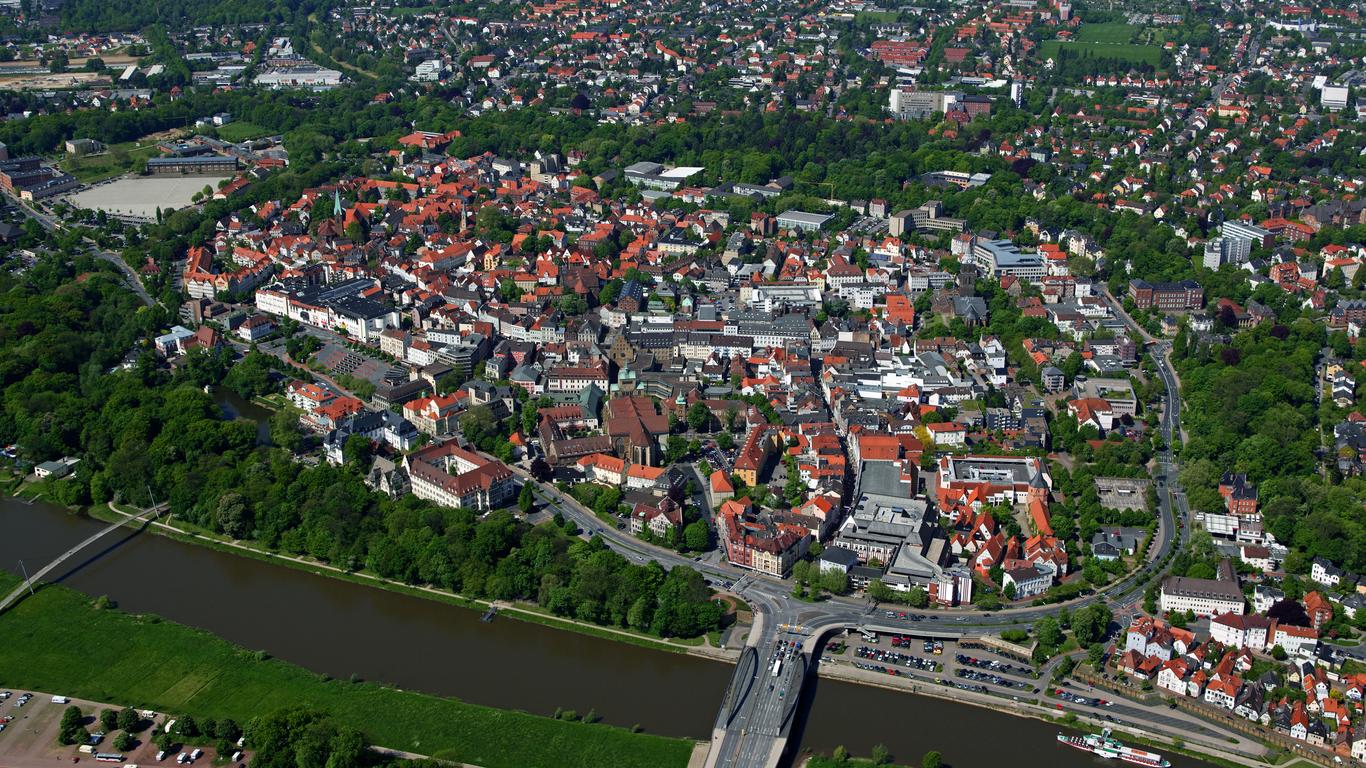Minden is the capital of the district Minden-Lübbecke located in the northeastern region of the state of North Rhine-Westphalia, Germany. This town is a historic and political epicentre boasting architectural significance from the Weser Renaissance epoch and a modest population of nearly 100,000 residents. Minden is situated on the River Weser between the prominent hills of Weser and Wienhen.
The reigning allure of the town of Minden is the 1,000-year-old Cathedral of St. Gorgonius boasting equally impressive elements of the Romanesque and Gothic styles. Popular points of interest include the monument of the Great Elector and the monument to the Battle of Minden. Two museums serve as archives and public exhibitions of the area’s history, known as the Preußenmuseum Minden and the Minden Museum of History, Cultural Studies and Folklore.
Minden Station serves as the area’s railway hub providing for both the Hanover–Minden and the Hamm-Minden lines. The A2 and the A30 are the two major connecting roadways. Bicycling is also a popular way of getting around, provided for by numerous bike paths.
The earliest history of Minden dates back to the 3rd century A.D, first mentioned in the Franconian Imperial Annals. The town served an important purpose during the Seven Years’ War as the battlefront for the Battle of Minden.





